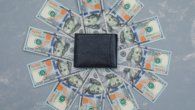
4 Ways Islamic Finance Can Help End Poverty
We live in an era of vast wealth and luxury, surrounded by billionaires, towering skyscrapers, and countless conveniences. Yet, despite the abundance around us, many people across the globe are trapped in extreme poverty. Millions face starvation or lack access to adequate medical care. It’s as if we inhabit two different worlds: one where people have more than they need or want, and another where people struggle to meet their most basic needs.
According to the UN, there is enough food to feed everyone on Earth. Hunger is not caused by a lack of food production but by inefficiency and waste. Around one-third of all food produced for human consumption is lost or wasted each year, with most of this waste occurring in developed countries. Meanwhile, our global material footprint has increased by over 70% since 2000.
Not surprisingly, the per capita material footprint in high-income countries is 13 times greater than in low-income countries. This highlights not only the vast economic inequality but also the unnecessary strain we place on the environment through unsustainable consumption patterns.
It’s clear that we have enough resources, but they are poorly distributed and used inefficiently. The Islamic financial and economic system offers several tools that can help address these issues, including: (list follows).
#1. Zakat
Zakat is an essential and compulsory aspect of life for Muslims, involving the obligatory payment of charity on excess wealth once every lunar year, typically amounting to 2.5%. The word “zakat” appears 32 times in the Qur’an, with Muslims instructed, for example:
“Establish prayer and pay zakat. Whatever good you send forth for yourselves, you will certainly find its reward with Allah. Surely Allah is All-Seeing of what you do.” (Qur’an 2:110).
Beyond its spiritual and personal benefits, zakat has several key economic advantages, including:
- Injecting liquidity into the economy: Zakat is usually levied on liquid assets such as gold, cash, and trade goods, not on non-liquid assets like a residence. This means that excess wealth, which would otherwise remain idle, is transferred to the poor, who are likely to spend it, thus stimulating economic activity. A stimulated economy, in turn, helps lift the poor out of poverty.
- Direct aid to those in need: Zakat is distributed to eight specific categories of recipients. Studies show that direct cash transfers are one of the most effective ways to distribute aid, as they improve recipients’ dietary diversity, boost job search efforts, reduce long-term poverty, and are cost-effective.
- A wealth tax, not an income tax: Zakat is a tax on wealth rather than income, encouraging the productive use of wealth and discouraging hoarding. This incentivizes trade and investment, which can further contribute to economic growth.
Historically, zakat has been used successfully to reduce or even eliminate poverty. In his book Zakat Made Easy, Mufti Faraz Adam discusses how zakat, when combined with other elements of the Islamic economic system, can fully eradicate poverty. A notable example comes from the caliphate of Umar (RA), when Mu’adh (RA) was sent to Yemen to collect zakat. After distributing zakat to the needy, Mu’adh (RA) sent a portion back to Madinah, as he couldn’t find enough recipients in Yemen. By the third year, he returned all of the zakat collected in Yemen, explaining to Umar (RA) that there were no longer any people eligible to receive zakat. This example demonstrates the potential of zakat to eliminate poverty.
However, the modern economy is far more complex than it was during the time of Umar (RA). So, is it still possible to use zakat in this way today?
Several studies suggest that zakat could indeed eradicate poverty, although these studies are typically region-specific, as estimating the global zakat pool and poverty levels remains challenging.
One common measure of poverty is living on less than $1.90 a day. The UN estimates that in 2022, 676.5 million people lived in poverty by this standard. To lift them out of poverty would require an estimated $469.15 billion per year. The global zakat pool is estimated to range between $200 billion and $1 trillion annually. Therefore, the funds needed to eradicate poverty fall within this range. However, it’s important to recognize that defining and addressing poverty, as well as effectively transferring wealth, is a complex and nuanced process.
#2. Avoidance of riba
Riba (interest) is clearly prohibited within the Islamic financial ecosystem. This results in a negative outcome for a variety of reasons. These reasons include the following:
- It perpetuates inequality, which generally leads to lower growth. This, in turn, impedes the ability of the poor to pull themselves out of poverty.
- Lopsided risk. When interest is used as a financing mechanism instead of risk sharing, it may lead to the accumulation of wealth among the rich without any meaningful benefit to the economy. Additionally, financing a project using risk sharing instead of interest has many benefits. This is especially true for those who require finance. When using interest to finance a project, the lender is entitled to a return of capital along with an excess irrespective of the outcome. However, in a risk-sharing transaction such as Mudarabah (profit sharing) or Musharakah (partnership), the financier is only entitled to a return if the project is a success. If the project is highly successful, the return is likely to far exceed any return a lender may have received on a loan. If the project is a failure, both parties will lose either money or/and time in a risk-sharing transaction. However, the one who requires financing will not be burdened with paying back the initial investment. This is a more just and equitable means of financing as it impedes the accumulation of wealth by the rich to the exclusion of the poor.
- Misaligned interests. Irrespective of the situation of the borrower, the lender is bound to pressurize the borrower as much as possible as the lender has a monetary incentive to do so. This may put a borrower in a situation where the borrower must make decisions that aren’t in their best interest. When interest is used as a means of finance, as opposed to some sort of risk-sharing mechanism, there is less of an incentive for the lender to ensure the venture of the borrower is successful.
Waqf is an extremely efficient and effective method to distribute resources as it utilizes market forces. However, it can be instituted for the benefit of the poor. Waqf is one prominent use of the third sector in Islamic economics that overcomes the challenges and shortcomings of conventional free-market leaning as well as command economic systems.
The Waqf Hotel ‘Uthman ibn ‘Affan'(RA) is an amazing example of how a waqf can be structured. When the Muslims migrated to Madinah, they found that the water was difficult to drink as they were accustomed to Zamzam water. The Prophet (PBUH) was then informed of a well called Rumah. The water of Rumah tasted similar to Zamzam. Unfortunately, the well was owned by a Jew who would charge even for a handful of water.
The Prophet (PBUH) sent an offer for the well in exchange for a garden in paradise. The Jewish owner refused this offer, insisting that he would only accept money. When Uthman (RA) learned of this incident, he offered to buy the well. The owner once again refused to sell the well. At this point, Uthman (RA) offered to either buy or rent half the well: a day would be for the Muslims, and on the other day, the owner could sell to whoever he wished. The owner agreed to this arrangement. Subsequently, everyone would use the well on Uthman’s day. The result of this was that the owner had no customers. Eventually, Uthman (RA) bought the entire well from the Jewish owner for 20 thousand dirhams and declared it as a waqf.
After being set up as a waqf, date palms began to grow around the well. Subsequent Muslim rulers, governments, or empires looked after the waqf of Uthman(RA). The waqf of Uthman eventually came under the management of the Saudi government. The government would sell the dates in the market. The proceeds from the dates would be divided into two: half would be distributed to the poor and orphans, and the other half would be put into a special bank account in the name of Uthman (RA).
Eventually, the account accumulated enough money to buy land in Madinah, next to the Prophet’s (PBUH) mosque. A hotel built on this land will be leased to a hotel company. This arrangement is estimated to generate 50 million riyals per annum. Half will be distributed to the poor and orphans, and the other half will be put into a special bank account in the name of Uthman(RA).
#4. Good practices
One of the ways the Qur’an describes the Prophet (PBUH) is as a man of “outstanding character” (Qur’an 68:4). Additionally, the Prophet (PBUH) himself said, “I was sent to perfect good character.”
Given these descriptions, it’s no surprise that Islamic teachings emphasize many practices that, while not often highlighted within the Islamic financial system, play a crucial role in alleviating poverty. Some of these practices include:
1. Moderation
Islam is a religion that encourages moderation and warns against wastefulness. The Qur’an states:
“Eat and drink, but do not waste. Surely, He does not like the wasteful.” (Qur’an 7:31)
Overconsumption by the wealthy often exacerbates poverty among the less fortunate. By practicing moderation, Muslims can reduce inequality and ensure resources are used more efficiently, helping to address poverty.
2. Remembrance of Allah
Acknowledging our innate connection to Allah is essential. When we place our ultimate focus on Allah, it becomes easier to foster justice, fairness, and ethical behavior in our financial dealings. Attempting to fill the void within ourselves with material possessions often leads to harm, whereas seeking fulfillment through faith promotes responsibility and compassion toward others.
3. Financial Responsibility
Islam teaches that Muslims have a duty to look after the well-being of others in their community. The Prophet (PBUH) said:
“He is not a believer whose stomach is filled while his neighbor goes hungry.”
This statement underscores the financial responsibility Muslims have toward their neighbors, promoting generosity and preventing the hoarding of wealth, which helps reduce poverty and ensure everyone’s needs are met.
4. Fair and Ethical Labor Practices
Islam places great emphasis on treating people with dignity and fairness, especially in the labor and financial sectors. The Prophet (PBUH) is known to have said:
“Pay the worker his dues before his sweat has dried up.”
This hadith highlights the importance of fair wages and prompt payment for labor, promoting justice and reducing exploitation in the workplace. Ethical labor practices contribute to a more equitable economy, which in turn helps reduce poverty.
By incorporating these principles into daily life, individuals can create a more just and balanced society that actively works toward the eradication of poverty.
Conclusion
It is clear that the Islamic financial and economic system provides effective mechanisms for eradicating poverty. The earlier example from Yemen illustrates how the Islamic model successfully eliminated poverty in a region. Many other individual stories of poverty alleviation can be found by speaking with community leaders or grassroots organizations.
In-depth studies have shown that poverty can be eradicated at a regional level using the Islamic model’s tools. Additionally, existing data suggests that the Islamic model holds the potential to eliminate global poverty. The main challenge lies in ensuring thorough implementation, simplifying processes, and continually advancing the Islamic model. Once these steps are taken, we can look forward to a brighter future for humanity.





Leave a Reply